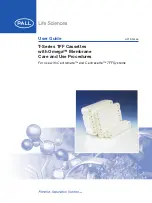
across the hull, boundary layer turbulence, and interference from other
echo sounders.
While very
little can be done to combat ambient noise, carefully selecting
the transducer mounting location can help to minimize the influence of the
“vessel generated” noise. Of course, the lower the acoustic noise level; the
better the signal-to-noise ratio and the higher the echo sounder gain setting
that can be used.
Mounting Location-Displacement Hulls
Study the shape of the vessel hull carefully to determine
best
transducer mounting location. To achieve optimal echo sounder system
operation, the transducer should be mounted in a spot which will minimize
acoustic noise reception and the chance that aerated water will flow across
the transducer’s acoustic window (transmitting surface).
One of the main sources of vessel generated noise is from the propeller.
It is very important to pick a mounting position to keep the transducer
clearly away from this noise source to minimize pickup.
As an additional precaution tilt
the transducer forward slightly so
that the transducer acoustic win-
dow is facing away from propeller
noise.
Generally
a
forward tilt is
recommended. Any tilting is nor-
mally accomplished in the shaping
of the fairing block.
Mount the transducer on the side
of the hull where the propeller
blades are moving downwards.
The upward motion of the propel-
ler generates pressure waves
which pushes air bubbles up
against the hull. By mounting the
transducer on the downward side,
the hull will tend to protect the
transducer from this effect.
INSTALLATION 22
















































